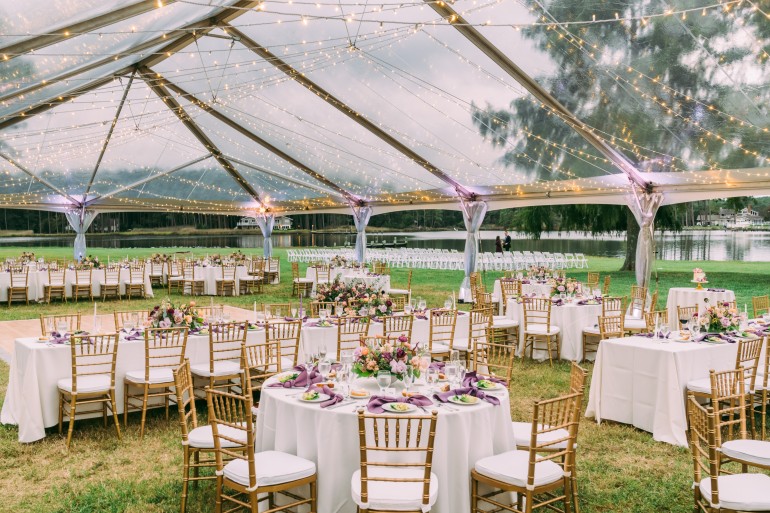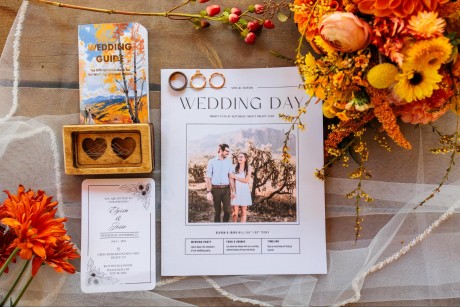Aspects of Weddings Often Overlooked
Guest Post by Meghan Paradee
Start Early in the Planning Process
It is never too early to start planning. There are dozens of things to think about, timelines to create, vendor contracts to sign, save the dates and invitations to send out, dresses to purchase, wedding party members to select – the list goes on. There are many critical key aspects of planning a wedding that are often overlooked. Read our tips and plan your wedding like a pro!
Venue Selection
The first task at hand should be finding and securing a venue. At times, this must happen prior to setting a firm date due to availability, especially during the peak wedding months of May, June, September, and October. It is best to approach venue shopping with a goal wedding date; have a few backup dates on hand to avoid disappointment if you fall in love with the venue but your date is booked. Some wedding venues are booked as far as two years in advance, but more commonly, 10-12 months in advance.
When thinking about your wedding date, consider variables that could impact your wedding in a negative way. For example, in the Dover area, you will want to avoid Nascar weekend due to elevated hotel prices and traffic. In the Delaware beach areas, you will want to stay away from Memorial Day and Labor Day weekends, as well as July 4th weekend, again, due to hotel prices and traffic. These types of cost factors can make it exceedingly difficult and quite expensive for out-of-town guests.
Ask the Questions
Once you’ve found the venue of your dreams, take a quick pause! Before signing the dotted line, it is imperative that you have a solid idea of the outside costs associated with the location.
If your venue is indoors:
1. Is catering included? What are the menu options and price points? Do they provide plates, flatware, and glassware, or are you required to rent it? If the venue allows outside catering do they have a preferred caterer list from which you must pick?
2. Are you able to bring in outside alcohol? If so, do they charge a corking fee?
3. Does the venue supply tables and chairs, if so, is that cost included? What quantities and styles do they offer? Will the venue staff set up and take down the tables and chairs according to the floor plan you create, or are you required to do that? And don’t forget about table linens, what color options are offered and is the cost included?
4. Does the venue have a dance floor and/or band stage on-site, or are you required to rent that?
If you are bringing in rentals:
Make sure to find out if the rental company can deliver on the Thursday or Friday prior to your wedding and pick-up on the following Monday. Some venues have multiple events per weekend, so they have tighter access requirements for vendors.
Tip: If the venue only allows you to bring in your rentals/décor/flowers/etc. on the day of your wedding and items must be removed that evening, those details must be relayed to your rental company and other vendors as soon as you are aware. There are typically weekend or overtime fees associated with delivery or pick-up time requirements outside of normal business hours. Coming from the standpoint of the rental company, as well as many other vendors, we are not able to accurately price quotes unless we are made aware of time restrictions and venue particulars that could impact scheduling.
If your venue is outdoors and a tent is required
All of the same schedule-related questions apply. In addition, when planning a tented wedding there are a few more questions to add to your list.
1. Are any of the rental fees factored into the venue cost? Some venues offer clients a “base package” for tent and event rentals they work out with their preferred rental company. However, it is typically just that, a base package. You will want to carefully look at the selections, ask about upgrade and change options, and make sure you are able to work directly with the rental company to make product selections right for you.
2. Does the venue take care of reserving your rentals or are you required to make the down payment to reserve? Make sure you are clear on this to avoid a mix-up.
If you, the client facilitate the tent rental:
1. Can the delivery truck pull up to the site for tent installation?
2. Can the tent be staked into the grass? Are there sprinklers or underground utilities in the area?
3. Is there adequate electric access available to power tent lighting, the band or DJ, and catering equipment?
4. Will you need a prep tent for your caterer or is there an indoor area from which they can work?
5. Are you required to rent a restroom trailer?
Asking your wedding venue these questions upfront will save you time and potential additional costs down the road.
Plan for poor weather!
An outdoor ceremony location that overlooks a spectacular backdrop can be the selling point of a venue. The idea of an open-air cocktail hour is the best; allowing guests to mill around and explore the venue or property, watch the sunset, or play lawn games. Just keep in mind, that it could potentially rain.
I have been working in the rental industry for over 20 years, and I tell all of my brides and grooms, “If you plan for rain, it won’t happen.” Now, I say that jokingly, however, it holds true for the most part! If you have a solid “rain plan” in place and ready to execute if needed it is (not at all scientifically) proven that it is less likely to rain, ha-ha! I can guarantee that if rain is planned for, you will not be panicked or upset if it happens.
Ask your venue if there are indoor spaces available to utilize last minute if the forecast isn’t favorable for the outdoor segment of your event. There is also the option of reserving a tent as a “backup rain plan,” although there is a down payment to hold a tent, the guarantee that it will be there if you need it is worth it in most cases.
Final Review
Meet with or speak to all vendors 2-3 weeks out to review the timeline and details! Review and confirm load-in and load-out timing. Go over the timeline for the ceremony and reception and make sure that everyone with an assigned task has that information as well as a contact phone number (other than the bride or groom) to call with day-of questions. If your wedding requires several outside vendors and logistical coordination, we recommend enlisting the help of a wedding planner. Although your venue, catering, and rental managers are well versed in balancing details and logistics, having a planner as the vendors’ first point of contact as you approach your wedding day will keep things smooth sailing.
Details and logistics are often the overlooked after thought of planning a wedding, especially due to the very long task list that wedding planning entails. Although this article is more of a 30,000-foot approach, it will prompt you to think from a planning perspective, which will help you throughout the process.

Meghan Paradee, VP of Sales & Marketing

As the Vice President of Sales and Marketing at Collective Event Group, your premier tent and event company in the Mid-Atlantic, I bring over 20 years of industry expertise and leadership. Based out of our four showroom locations, I oversee our operations across Delaware, Maryland, Pennsylvania, and New Jersey.
My role involves leading our dynamic sales team to drive revenue growth and expand our brand presence. By creating and refining procedures, maximizing resources, and enhancing inter-departmental communication across our four branch locations, I ensure seamless execution of our events.













